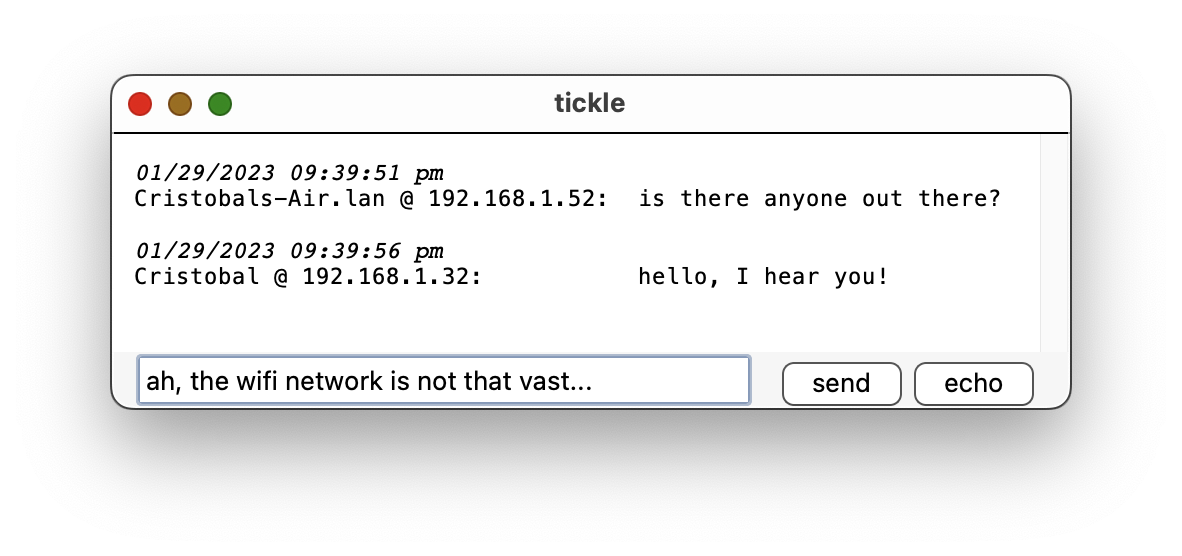Worry-free broadcasts
What if messages couldn't get past your router?
What if history was only stored if someone was listening?
What if catching up meant someone relaying the past back at you?

Sitting on a couch, alongside a friend, I asked: "How can I send a message from this computer, through just the router, to that computer?"
Today, without niche knowledge in networking, it's impossible. All information travels through "the cloud," trans-national infrastructure consisting of server farms linked by thousand of miles of cables along the seabed. You can talk to anyone, anywhere, as long as you accept there is a man in the middle, or adopt a Kafkaesque level of caution, with its own costs and paranoias.
We are numb to the bureaucracy of the internet. Graber's Iron Law of Liberalism operates in digital space. Password managers, two-factor, VPNs, CORS, cold wallets, &c are not achievements. They are symptoms of a pathological system, barriers to a non-alienated digital life. As Mark Fisher heeds in Capitalist Realism, it is the left that must be anti-bureaucracy!
Google provides no simple answers for how to communicate between machines on a local network. After enough wading, you'll find `netcat`, copy-pasted with too many flags because few know what they're doing. To our detriment, we no longer expect local affordances from our devices. Luckily, the designers of the internet protocols left a backdoor, good old broadcasting.
Tickle is an experiment in constraint. It's a chat room that operates through your router. It's also a {networked, threaded, GUI} program written in Tcl and C, a proof of concept in computational bricolage. Worse is better.
Cristóbal Sciutto, April 2023.